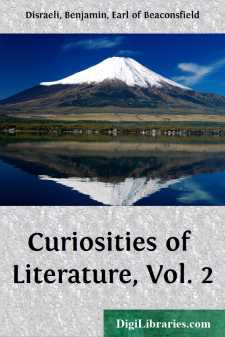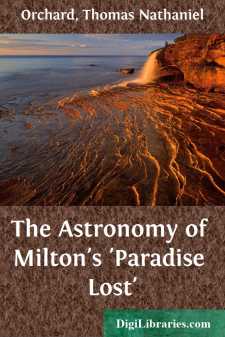Literary Criticism
- American 18
- Ancient and Classical 3
- Asian 1
- Australian & Oceanian 1
- Books & Reading 8
- Caribbean & Latin American 2
- Drama 2
- English, Irish, Scottish, Welsh 49
- European 7
- General 37
- Horror 1
- Humor 2
- Jewish 2
- Medieval 2
- Middle Eastern 3
- Poetry 7
- Renaissance 6
- Russian & Former Soviet Union 1
- Shakespeare 27
Literary Criticism Books
Sort by:
Elsewhere we literary folk are apt to be such a common lot, with tendencies here and there to be a shabby lot; we arrive from all sorts of unexpected holes and corners of the earth, remote, obscure; and at the best we do so often come up out of the ground; but at Boston we were of ascertained and noted origin, and good part of us dropped from the skies. Instead of holding horses before the doors of...
more...
by:
Louise Manly
PREFACE. T primary object of this book is to furnish our children with material for becoming acquainted with the development of American life and history as found in Southern writers and their works. It may serve as a reader supplementary to American history and literature, or it may be made the ground-work for serious study of Southern life and letters; and between these extremes there are varying...
more...
I do not think that such a fact would now move the fancy of the liveliest newspaper man, so much has the West since returned upon the East in a refluent wave of authorship. But then the West was almost an unknown quality in our literary problem; and in fact there was scarcely any literature outside of New England. Even this was of New England origin, for it was almost wholly the work of New England men...
more...
CHAPTER I. The Subject Defined To attempt at the outset a rigid definition of the word romanticism would be to anticipate the substance of this volume. To furnish an answer to the question—What is, or was, romanticism? or, at least, What is, or was English romanticism?—is one of my main purposes herein, and the reader will be invited to examine a good many literary documents, and to do a certain...
more...
CHARLES THE FIRST. Of his romantic excursion into Spain for the Infanta, many curious particulars are scattered amongst foreign writers, which display the superstitious prejudices which prevailed on this occasion, and, perhaps, develope the mysterious politics of the courts of Spain and Rome. Cardinal Gaetano, who had long been nuncio in Spain, observes, that the people, accustomed to revere the...
more...
1 My Dear Antony,The letters which I wrote "On the world about you" having shown you that throughout all the universe, from the blazing orbs in infinite space to the tiny muscles of an insect's wing, perfect design is everywhere manifest, I hope and trust that you will never believe that so magnificent a process and order can be without a Mind of which it is the visible expression. The...
more...
by:
Hilaire Belloc
MY DEAR ECCLES, You will, I know, permit me to address you these essays which are more the product of your erudition than of my enthusiasm. With the motives of their appearance you are familiar. We have wondered together that a society so avid of experience and enlargement as is ours, should ignore the chief expression of its closest neighbour, its highest rival and its coheir in Europe: should ignore,...
more...
CHAPTER I A SHORT HISTORICAL SKETCH OF ASTRONOMY Astronomy is the oldest and most sublime of all the sciences. To a contemplative observer of the heavens, the number and brilliancy of the stars, the lustre of the planets, the silvery aspect of the Moon, with her ever-changing phases, together with the order, the harmony, and unison pervading them all, create in his mind thoughts of wonder and...
more...
These studies are collected from the monthly press. One appeared in the New Quarterly, one in Macmillan’s, and the rest in the Cornhill Magazine. To the Cornhill I owe a double debt of thanks; first, that I was received there in the very best society, and under the eye of the very best of editors; and second, that the proprietors have allowed me to republish so considerable an amount of copy. These...
more...
by:
Ian Maclaren
BOOKS AND BOOKMEN They cannot be separated any more than sheep and a shepherd, but I am minded to speak of the bookman rather than of his books, and so it will be best at the outset to define the tribe. It does not follow that one is a bookman because he has many books, for he may be a book huckster or his books may be those without which a gentleman’s library is not complete. And in the present...
more...











